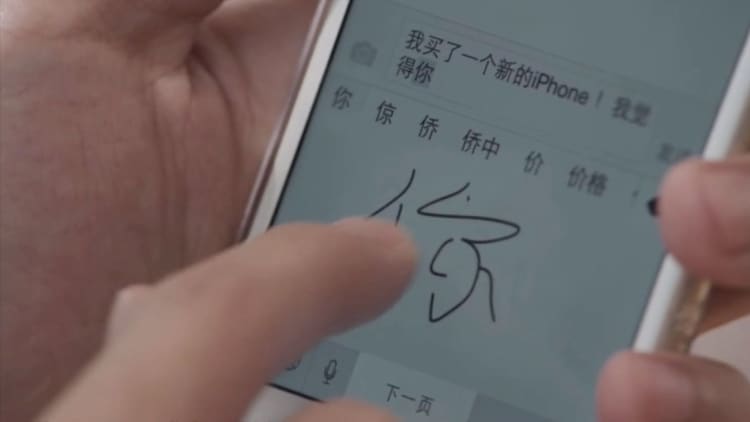
Technology giant Apple plans to take its latest trademark dispute over the iPhone name in China to the mainland's highest court, the company said today.
"We intend to request a retrial with the Supreme People's Court and will continue to vigorously protect our trademark rights," Apple said in a statement sent to the South China Morning Post.
California-based Apple recently lost its appeal in the Beijing Municipal Higher People's Court, which ruled that Xintong Tiandi Technology (Beijing) can use the "IPHONE" trademark on a range of leather goods.
That decision virtually ended the exclusive rights of Apple to use the iPhone name on the mainland.
The iPhone is the company's flagship product and the most popular device that it sells on the mainland, the world's biggest smartphone market.
"Apple is disappointed the Beijing Higher People's Court chose to allow Xintong to use the IPHONE mark for leather goods when we have prevailed in several other cases against Xintong," the Apple statement said.
More from the South China Morning Post :
HongKong cracks down on illegal money flows from mainland Chinatrade
Canada cites espionage risk from two Huawei employees, saying it plans to reject their immigration applications
Dalai Lama urges Hong Kong not to quit democracy fight, says pro-independence activist after visit
A source said the Beijing court's ruling "relates to only one category of trademark: imitation leather, leather, wallets, purses, leather thread, leather passport wallets, leather key cases, leather straps and leather trimmings for furniture".
The court granted Xintong use of the Apple trademark for that category of products, which it had first applied for on September 2007.
Apple applied for the iPhone trademark in China in October 2002, but it was not approved until 2013. That trademark covered so-called Class 9 electrical and scientific apparatus, according to a report in the state-owned Legal Daily.
Another source said Apple had previously "succeeded in opposing and cancelling other marks, including 'IPHONE', 'iphone shop' and 'ipad' marks, sought by this company [Xintong] in other trademark categories".
The legal setback over the exclusive use of the iPhone brand on the mainland may have evoked a sense of deja vu for Apple, which had to settle a lengthy and acrimonious fight over the iPad name in 2012 with a US$60 million payout to Proview Technology (Shenzhen).
That iPad trademark settlement was substantially less than the initial US$2 billion claim made by the mainland company.
"We work hard to make the best products in the world," Apple said. It added that the company wants "to ensure our customers' experience is not compromised by companies who try to profit from using our brand".

